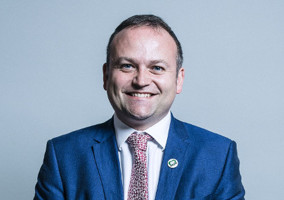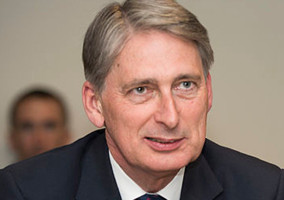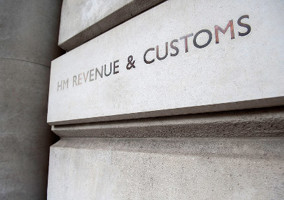On Monday afternoon Philip Hammond delivered the latest Budget. This included key funding announcements for Universal Credit, the NHS and local government as well as targeted announcements for charities.
Infrastructure bodies were frustrated that there was little in the way of strategic funding for the sector. While front-line charities said the government had not done enough to support people.
Infrastructure sector
Acevo: Scattergun announcements
Vick Browning, chief executive of Acevo, said: “Ahead of the Budget Acevo joined with a number of other membership and infrastructure bodies, collectively representing tens of thousands of charities across England and Wales, to write to the chancellor asking not for handouts but for long-term strategic investment in civil society that would build thriving, resilient communities.
“Much like the civil society strategy, the Budget set out a more positive vision from government than in recent years, but the substance is yet to be seen.”
CFG: Announcements don’t go far enough
Caron Bradshaw, chief executive of the Charity Finance Group, said: “Yet another Budget goes by without any strategic funding for the sector. The announcements on charity tax and some additional funding for local government social care and children’s services are to be welcomed, but they don’t go far enough. And it’s great to see funds for the military charities and air ambulances, however, worthy though those causes are, we desperately need the government to be more strategic in their funding of the sector as a whole.
“It was noticeable that the Budget was caveated with there being a successful outcome to the Brexit negotiations. Despite further funds being poured into managing the process however, a no-deal seems increasingly likely. In that event it’s difficult to see how the chancellor could hold off until spring to rethink spending.”
IoF: ‘Business as usual approach’
Daniel Fluskey, head of policy and external affairs, said: “The Budget overall seemed a ‘business as usual’ approach with not much that will be eye-catching for the charity sector. While we of course recognise the political complexities as the uncertainty over Brexit continues, following an aspirational civil society strategy published by government this summer we were hoping for a more ambitious programme announced today to invest in fundraising skills to help small charities go the distance and get charity tax working better to reduce costs for charities and encourage giving.
“Despite the stated move away from austerity measures, the reality is that communities are still seeing services cut and charities will have to continue to step in to fill the gap and need the right skills and support to do so. However, we’re glad to see the threshold for Gift Aid Small Donations Scheme rise from £20 to £30 as well as relieving some of the administration on Gift Aid Retail Scheme.”
NCVO: 'Some big-ticket items important to the sector that went without mention'
Karl Wilding, director of policy at NCVO, said: "We know lots of our members are concerned about the pressures on health and social care services and the impact of welfare reforms. Front-line organisations are really struggling with increasing demand. I hope today’s spending announcements will go some way to relieve these pressures.
"There were some welcome and useful changes to a number of specific tax regulations for charities which will make life easier, particularly when it comes to administering small donations and gift aid in charity shops.
"More broadly, charities are playing an ever-bigger role in society and we’d like to see the government reflect this. There were some big-ticket items important to the sector that went without mention. There is still no certainty on how dormant assets cash will be spent, despite an increasingly clear consensus among charities on the best way forward. Nor was there was any further explanation of how the shared prosperity fund – set to replace billions in European funding – will work. We hope to see further details on these issues in the very near future."
CAF: Use plastic levy to raise more for charity
Sir John Low, chief executive of the Charities Aid Foundation, said: “It is good news that the chancellor proposes to use the tax system to reduce plastic waste, but he should look to the success of the plastic bag levy to further reduce disposable plastics. We’ve seen first-hand how successful the levy was reducing the number of bags being used, while raising much-needed money for charities.
“The Budget also includes measures to make Britain a leader in digital development, but it is important that the implementation should be extended to charities to help them harness the opportunities of a digital world as well as manage the potential downsides for society. In a pre-Brexit Budget, it’s vital that charities play a role in ensuring the economy does actually work for everyone.
“The announcement of grants for individual causes is of course great news for the charities involved and the detail of the Budget includes some welcome measures to help small charities benefit from Gift Aid.”
DSC: ‘The claim of the end of austerity rings hollow’
Jay Kennedy, director of policy and research at the Directory of Social Change, said: “Despite new measures on Universal Credit and another social care funding stop gap, the claim of the end of austerity rings hollow. The chancellor made big statements about mental health provision that many charities will want to unpack, because they’ve heard similar things many times before.
“The clock is ticking down to our departure from the EU and there was no new news on a consultation about the future UK Shared Prosperity Fund, or the potential development of the Dormant Assets scheme to support community resilience. We may have to wait until the Spending Review to get more certainty about the Charity Commission’s budget’.
Social Enterprise UK: ‘Heading for more of the same’
Peter Holbrook, chief executive of Social Enterprise UK, said: “Champagne corks will be popping at the prospect of £9bn in tax cuts for business which the government has planned over the next five years. But what are we getting for this? Higher dividends for shareholders and bigger bonus cheques for chief executives?
“The chancellor had an opportunity to back social enterprises which share growth by paying their staff fairly and reinvesting their profits back into their communities. Unfortunately, he decided to rely on old-fashioned and failed economic ideas.
“If we want to build an economy that truly works for everyone, we need to back a different type of business. There is little in this Budget which to give people confidence that we are heading towards anything other than simply more of the same.”
Charities
Carers Trust: ‘We’re not sure how the Budget will reach carers’
Giles Meyer, chief executive of Carers Trust, said: "For one fleeting moment today we thought the chancellor had remembered unpaid carers in his Budget. Sadly, it was just that: a moment.
“The NHS will get extra money for mental health, but it isn’t clear how this will support carers. Carers often need help with their own mental health, especially young carers who are at risk of developing mental health problems. It’s also important carers are taken seriously as experts in care of people with mental health problems.
“And with only £650m for adult social care and £84m for children’s social care, spread across all of England’s local authorities, the needs of seven million carers and the local services that support them will barely be touched. This is too short term a solution.
“Carers don’t have a moment to wait for the help and support they need: too many are already in crisis. We’re not sure how any of the money in the Budget will reach them.”
Christian Aid: Government lacked ambition on digital tax
Toby Quantrill, economic justice lead at Christian Aid, said: "Ensuring that the big digital tech companies contribute fairly in the UK, where they do so much of their business, is important. But the expected income of £400m is unambitious compared to the profits these companies make. In reality, this is tantamount to an admission that these companies are too powerful to tax effectively.
"If the UK as the sixth largest economy can’t impose a credible tax bill on these global corporate giants, that meets with what the public expects, what hope do developing country governments have? The UK government has it within its power to move immediately and unilaterally to force companies to be fully transparent about where they operate, where they makes profits, and where they pay tax. But it continues to bottle even this simple action."
MS Society: More is need in next year’s spending review
Genevieve Edwards, director of external affairs at the MS Society, said: “Today’s Budget offers people with MS some hope that austerity might truly be coming to an end. But while the £1bn for Universal Credit and £650m for social care will go some way to improving their lives it will take a lot more to reverse the impact of years of deep and damaging cuts. Over 100,000 people in the UK have MS, and successive UK Government spending decisions to date have left many of them without support to live independently.
“Although £20bn for the NHS is significant, this funding will be undermined as people continue to turn to the health service as a last resort, when they don’t get support they need elsewhere. Both social care and disability benefits desperately need substantial and sustainable investment, and this must come in next year’s spending review.”
United Response: Announcements are a drop in the ocean
Tim Cooper, chief executive of United Response, said: “£650m of social care funding announced in today’s Budget is welcome, but must be considered against the severity of the wider social care crisis.
“The National Audit Office has documented a reduction of almost 50 per cent in Government funding for English Local Authorities since 2010. The Local Government Association has estimated a funding gap of £5.8bn for social care by 2020, which must be filled if councils are to avoid cutting back vital services.
“Set in this context, £650m is a drop in the ocean of what is needed to secure decent care services for disabled people, which government has a statutory duty to provide under the Care Act.
Action for Children: ‘We are fooling ourselves if we think this is enough’
Imran Hussain, director of policy and campaigns at Action for Children, said: “With the PM’s recent declaration of an end to austerity, our hopes were high this Budget would begin to tackle the desperate funding crisis in children’s services.
“The extra £84m is a welcome acknowledgement of the pressures councils are under, yet we are fooling ourselves if we think it will help start bridging the £3bn funding gap expected by 2025 and make a real difference to the lives of our most vulnerable children.”
|
Related Articles












